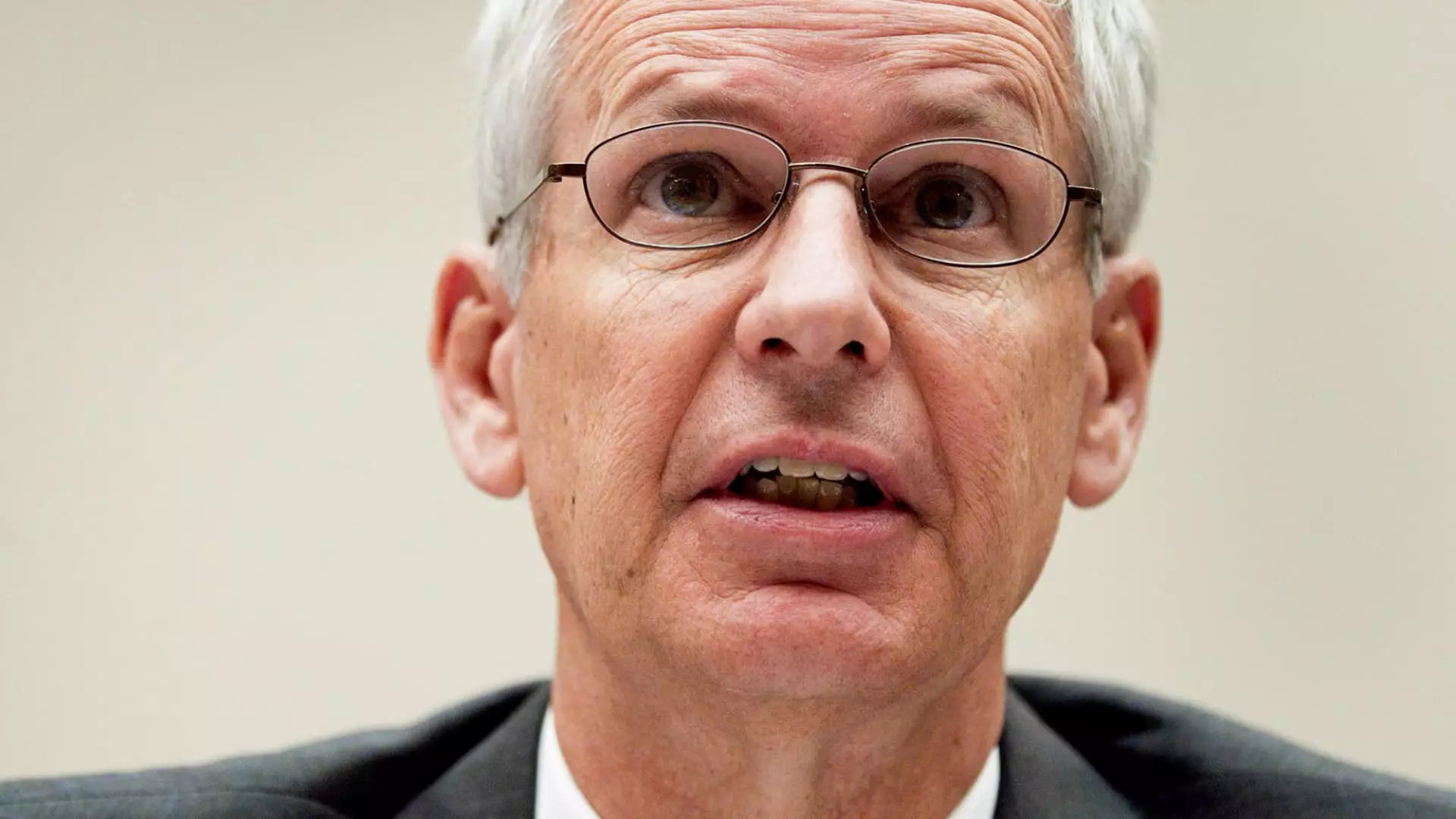In the tumultuous landscape of the telecommunications industry, Dish Network’s trajectory resembles a plotline from a sitcom—initially promising but ultimately leading to a disheartening finale. The tale began in earnest with co-founder Charlie Ergen’s 2011 earnings call, where he drew a fascinating analogy to the critically-acclaimed TV show “Seinfeld.” Ergen’s remarks suggested an optimistic view of Dish’s myriad of assets—much like the show’s episodic nature with numerous subplots, all awaiting a climactic resolution. However, as the years progressed and Dish pursued various strategic ventures, it became increasingly apparent that the anticipated convergence of success was becoming less likely.
Ergen’s stand-alone metaphor hinted at a company that was in constant flux, trying to piece together its disjointed assets into a cohesive, profitable business model. Unfortunately, this analogy would come to reflect not just the expectations of the company’s future but its actual outcome. What started with hope morphed into a spectacular decline. Ultimately, EchoStar, the parent company of Dish, faced stark realities that resulted in the sale of the pay-TV provider to DirecTV for a nominal price. The dramatic shift was not punctuated by triumph but rather by a fall from grace.
The collapse of Dish’s services is underscored by an alarming demographic shift in consumer habits. With the proliferation of streaming platforms and high-speed internet options provided by companies like Comcast and Charter, the traditional pay-TV model has become increasingly obsolete. The combined loss of subscribers for Dish and DirecTV, amounting to an astounding 63% since 2016, reinforces a dismal reality: the content-distribution industry is in sharp decline. As EchoStar CEO Hamid Akhavan pointed out, “Times have changed,” and not in favor of traditional service providers.
As Dish sought to navigate these tumultuous waters, its attempts to transform into a nationwide wireless carrier fell woefully short. The allure of merging pay-TV with wireless services was enticing but proved elusive. Dish’s acquisition of Boost Mobile as part of T-Mobile’s divestiture appeared to be a step towards expansion, but without sufficient capital and infrastructure, it became a hollow victory. The ambitious vision, once characterized by a plurality of paths as Ergen’s metaphors suggested, led the company to face harsh realities—distraction and mismanagement hampered its ability to execute a coherent strategy.
The financial repercussions of Dish’s misadventures cannot be overstated. The enterprise value that once had promising horizons plummeted in concert with its dwindling subscriber base. Watching EchoStar’s stock fall over 11% following the announcement of its distressing deal with DirecTV was a stark reminder of the waning confidence in the company’s future. The initiative that once had the potential to merge two titans of pay-TV has now resulted in a sale littered with debt—a staggering $9.75 billion worth.
Additionally, looking back at past decisions reveals a stark contrast to what might have transpired. When Dish and DirecTV contemplated a merger in 2014, their market values stood at impressive levels—DirecTV near $40 billion and Dish over $28 billion. The eventual sale of DirecTV to AT&T for nearly $49 billion marked a significant loss for Dish, which chose to chart its own course only to see its value drastically diminish.
As the dust begins to settle from this latest chapter, parallels with the finale of “Seinfeld” can no longer be ignored. The series finale that prompted widespread disappointment serves as a poignant metaphor for Dish’s trajectory—what began with exuberance ended in confusion and dissatisfaction. The disconnect between expectations and reality remains stark: a company once brimming with potential now reduced to mere footnotes in discussions about the future of television.
Dish Network’s story is not just a cautionary tale about mismanagement; it’s an illustration of the broader challenges facing traditional media in an age defined by rapid technological advancement and shifting consumer preferences. For a company that once sought to weave disparate threads into a cohesive narrative, the final act has delivered not a resolution but rather an invitation to reflect on what could have been. If there is one lesson to be gleaned from Dish’s journey, it’s that the best scripts, whether in television or corporate strategy, must ultimately align with the changing landscapes of their environments.


Leave a Reply